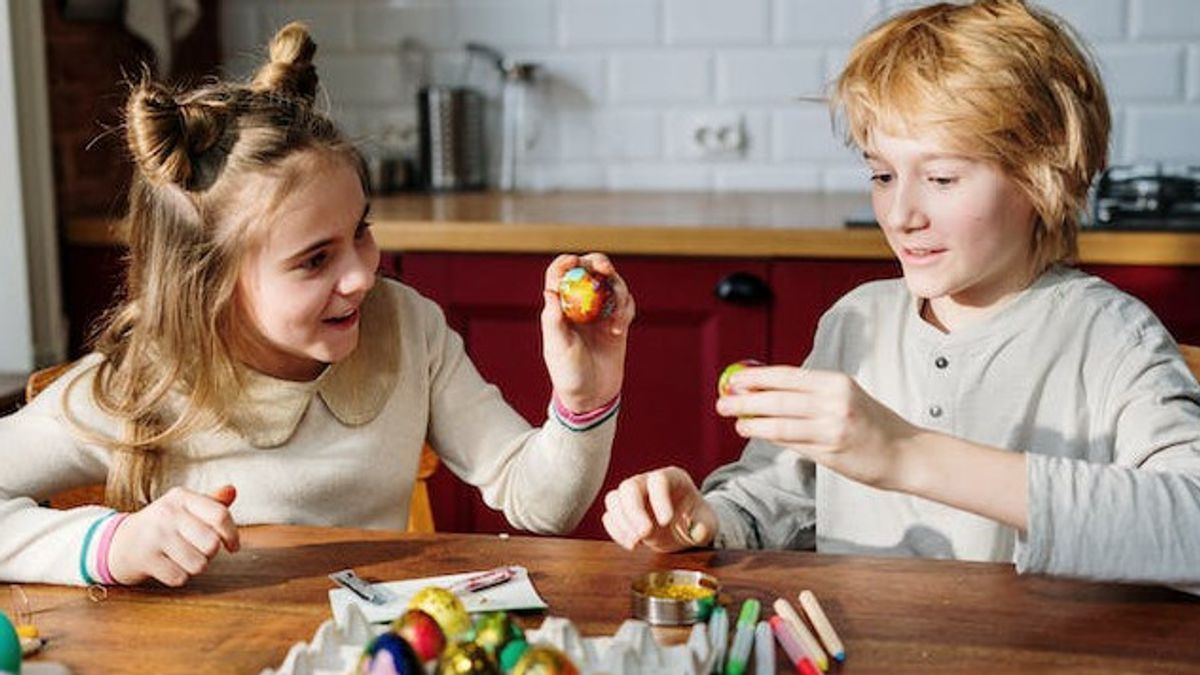JAKARTA - The brotherhood relationship between brothers and sisters can be so complicated, sometimes being close friends or vice versa being enemies. This is of course a challenge that parents must face.
Improving children's relationships is easier to say than done. However, to avoid fights to children. Here are some tips that parents can use to make their children get better at home.
The first thing you need to do is start talking to your kids about what's going on. Reporting from Very Well Family, Thursday, November 23, it might help if you talk to each other separately and then discuss the matter together.
Make sure each child has uninterrupted time to speak. Follow the basics of conflict resolution by letting each child feel listened to and having the opportunity to submit his complaint. In addition, let them share opinions about what is going on and offer a solution.
You can also tell them how you feel about their fight and its impact on the family as a whole. Ideally, you and your child can get together to exchange ideas about solutions to any problems that damage relationships.
Maybe they can agree on a better way of communicating, for example not interrupting each other or not calling each other names. It can also make up for each other's mistakes. Admitting one's heartache in the past can help escape and move on.
Try to give an example of the behavior you want to see from your children. Research shows that children often learn social skills by imitating. You can try to talk to them in a kind and loving way. Show children how to communicate effectively. Ask questions and socialize with children in a friendly way.
In addition, try to handle disputes gracefully, patiently, and in a calm manner. No parents are perfect, but avoid shouting, blaming, or embarrassing.
When you see them in harmony, make sure to praise. Focus on seeing the good that children do rather than their mistakes. Whenever you see them being caring, fun, and get along to give praise. Positive strengthening will most likely encourage a relationship.
It is important to have a house regulation that everyone can obey. Explain that treating all family members with respect and kindness is an absolute must. In addition, set a consequence if this rule is not obeyed. For example, if there is a physical fight or things that violate the rules, you can revoke the child's privilege of using your cellphone for one day.
You can also try to motivate children with gifts because they can get along well. Offering something they love can help change the dynamics of competitors to become teammates. The effort to win awards gives them additional reasons to focus on treating relatives like friends. Plus, they can only win by improving a common relationship, which puts the two in the same team.
VOIR éGALEMENT:
Be careful not to side with one of the children. You know that children often feel that their brothers are more fond than themselves. When the child doesn't get along, instead of immediately taking action, encourage them to try to solve their own problems before asking for help.
Suggest children exchange ideas to find compromise or solutions to the conflicts they face. This will not only get you out of problems related to complaints of favoritism but help your child build conflict resolution skills.
The English, Chinese, Japanese, Arabic, and French versions are automatically generated by the AI. So there may still be inaccuracies in translating, please always see Indonesian as our main language. (system supported by DigitalSiber.id)


















